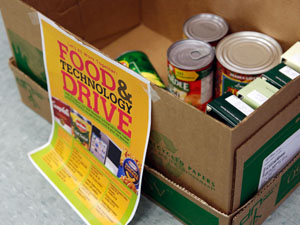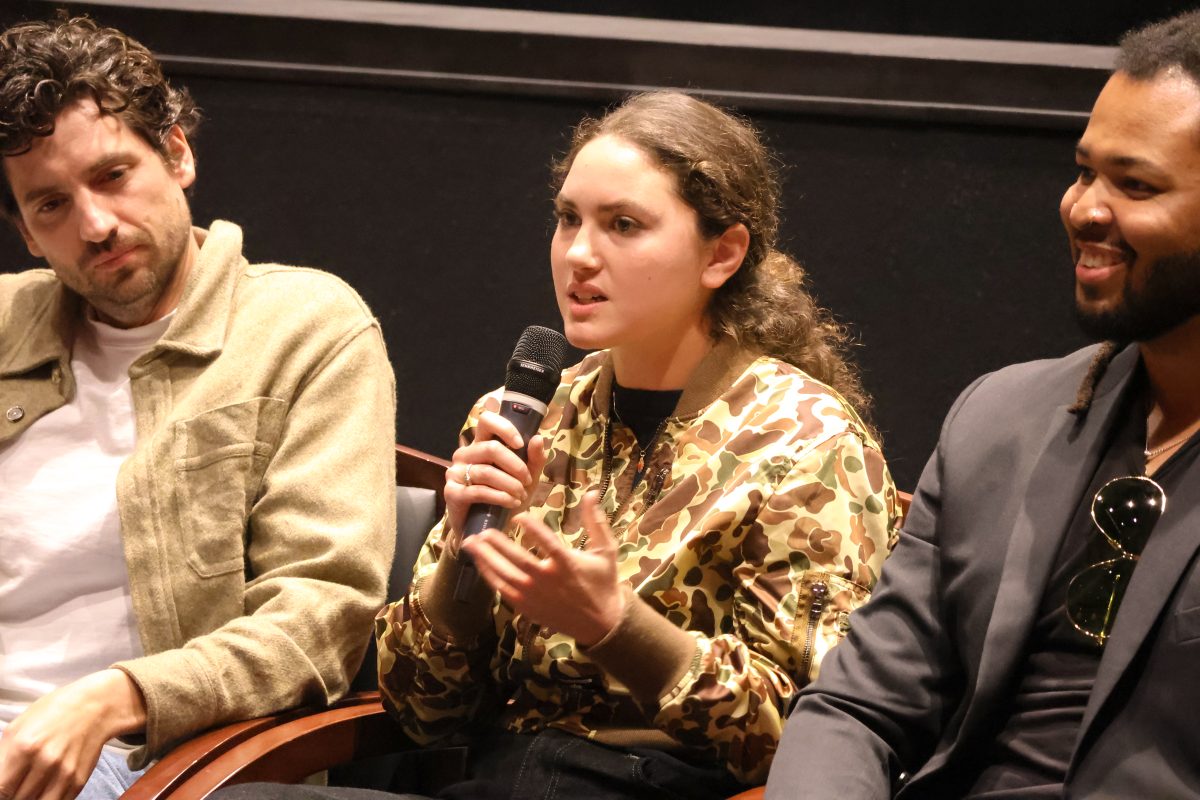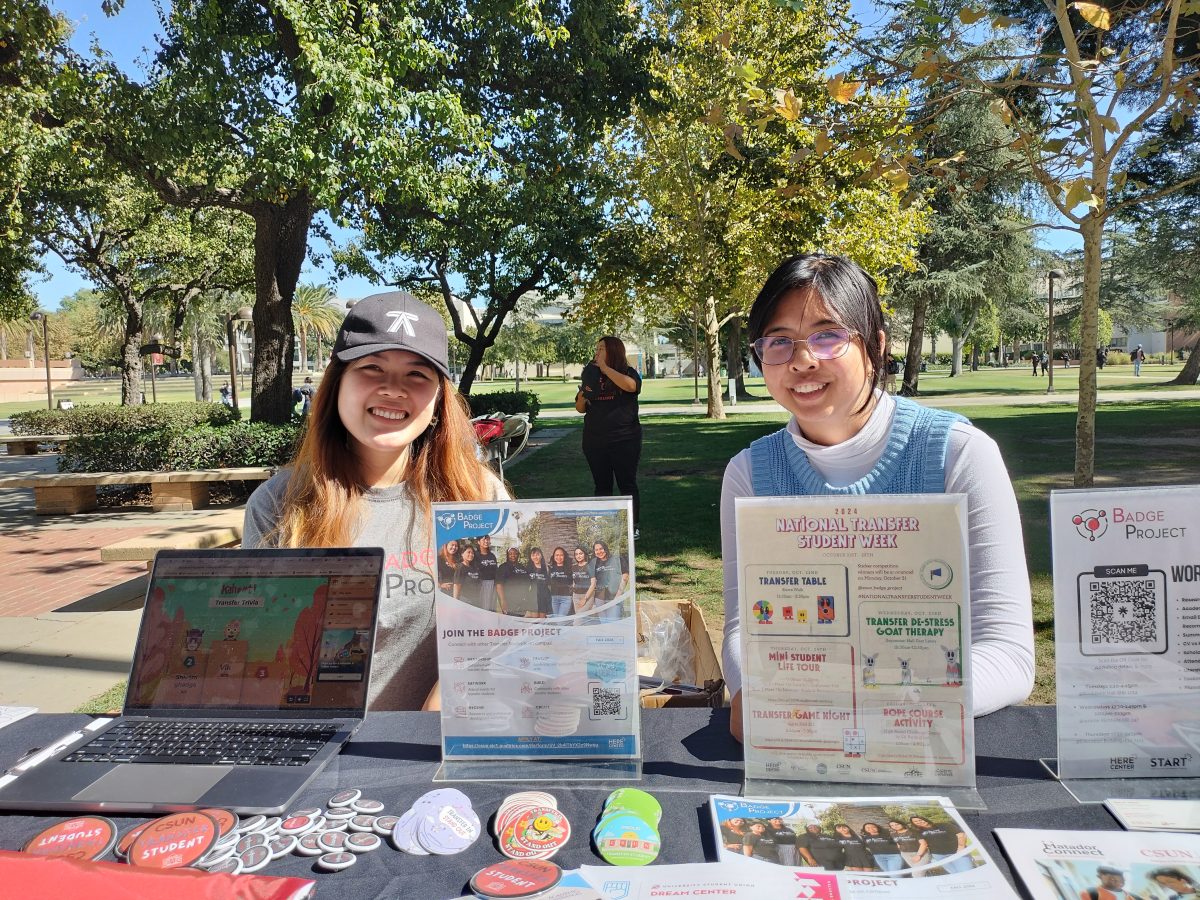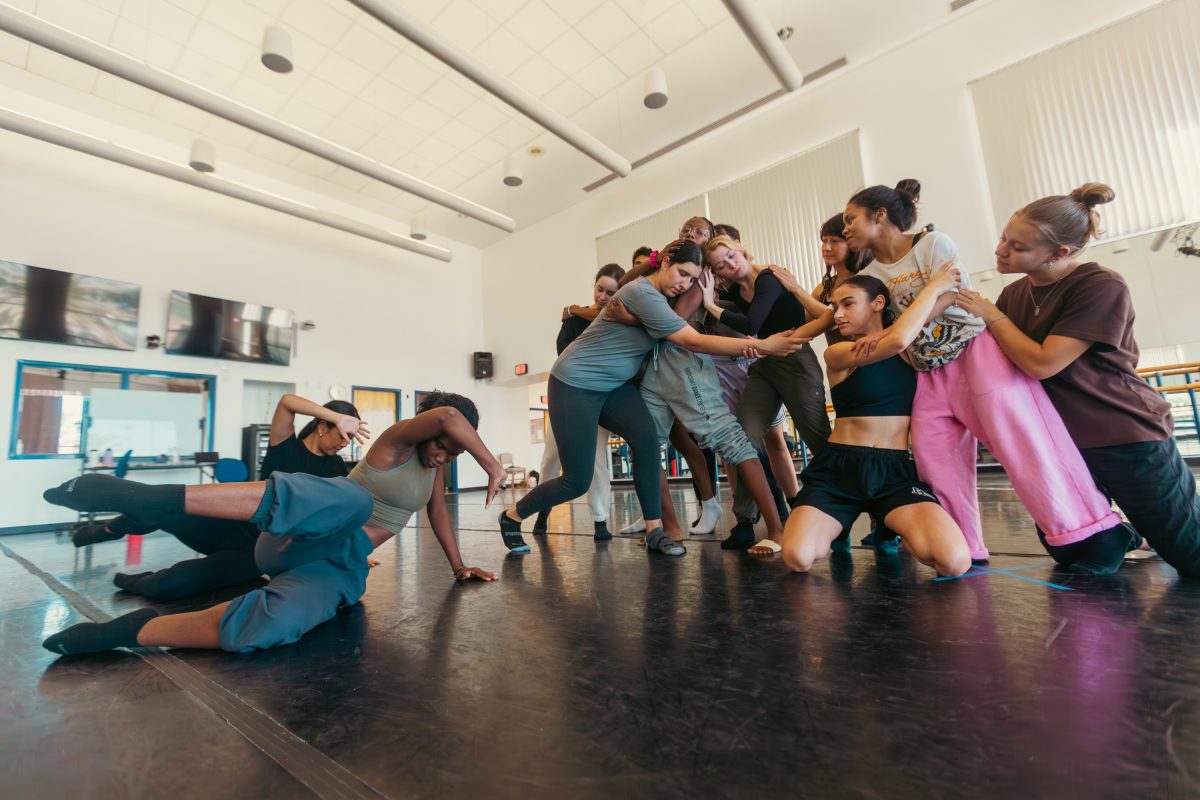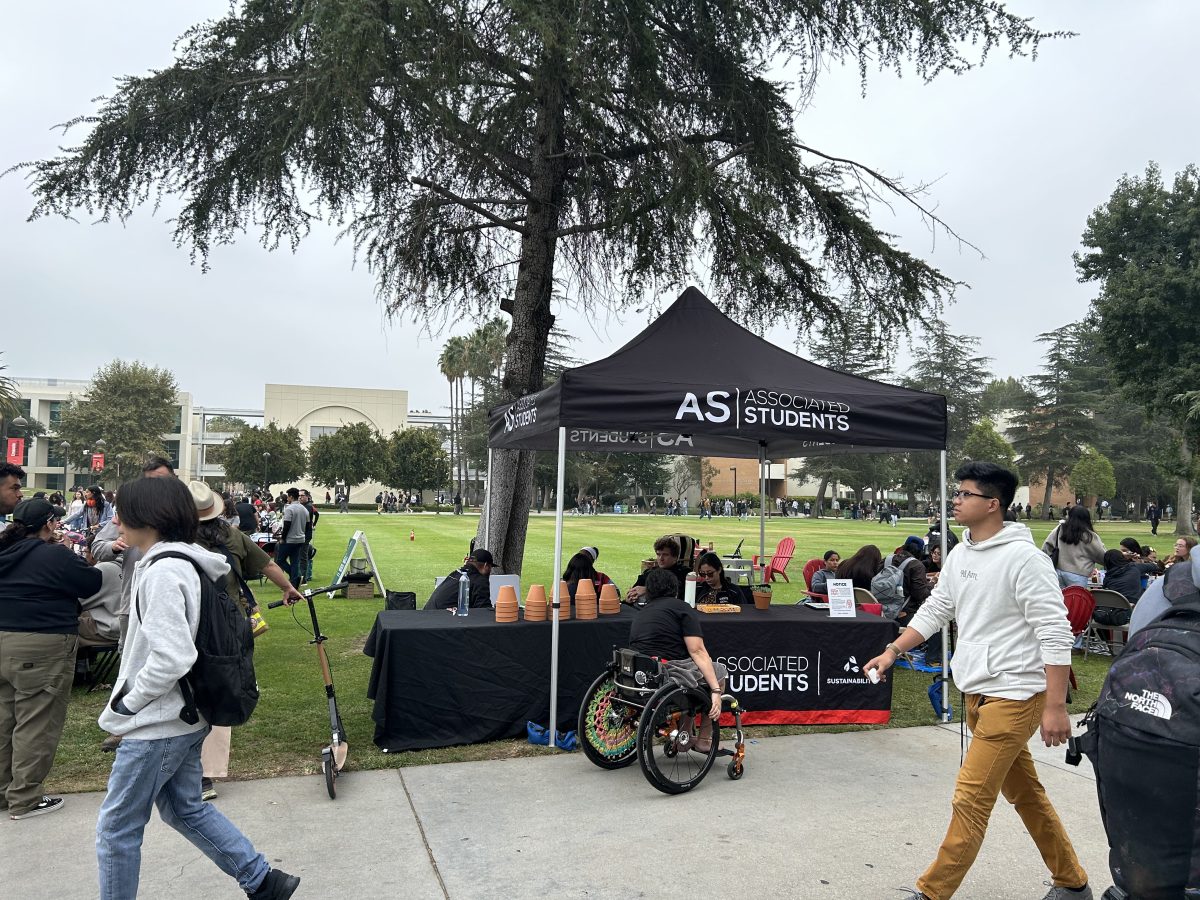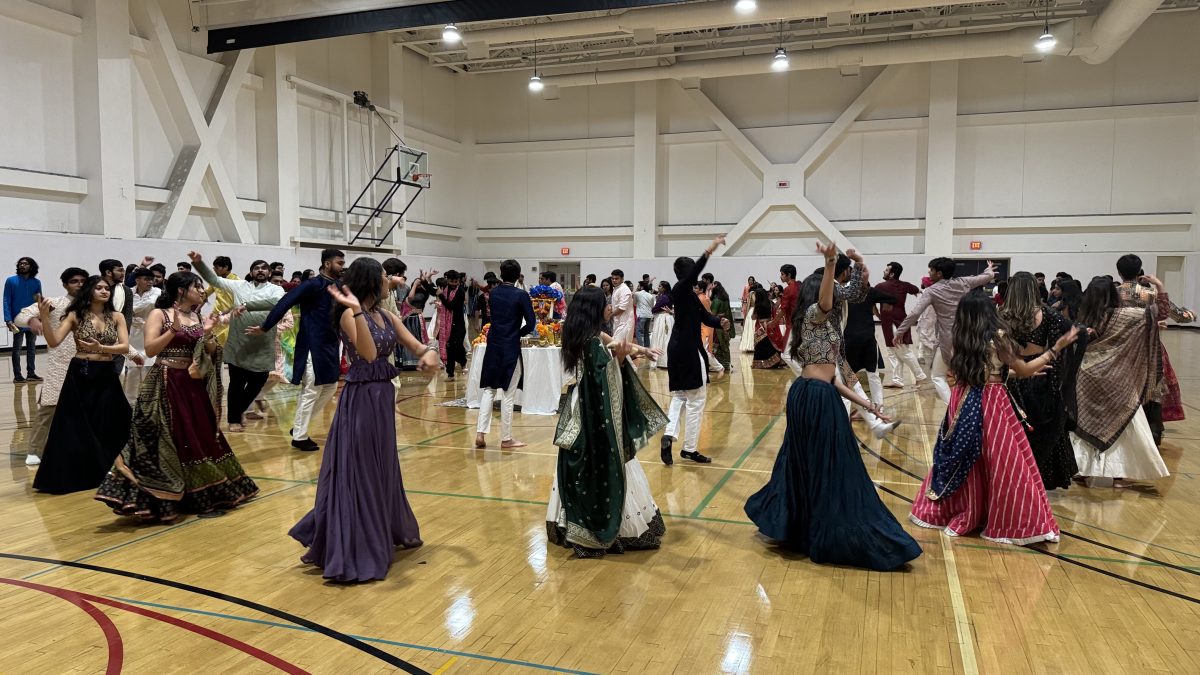
While many students are looking forward to leaving campus to spend leisure time with their families and savor home cooked meals, some EOP Resilient Scholar students will remain on campus throughout the winter break because they don’t have traditional family structures.
The EOP Resilient Scholar Program (RSP) is designed to help emancipated foster youths access resources such as college admission, financial aid, housing, health and counseling services.
RSP students go back and forth from campus to their family members or foster homes, while others will remain on campus throughout the entire break. The RSP’s annual Food and Technology Drive is an event that provides for a portion of CSUN students’ needs.
“This campus is (getting) ready to turn into a ghost town with the break coming up. But there still will be students who will need support and services and one of the main things is food. We want to make sure that there is food to give to our students,” said Trimaine Davis, EOP Resilient Scholars Program assistant.
The annual drive began out of concern for students. EOP staff and faculty noticed students losing weight, stomachs roaring and a loss of concentration because they didn’t have enough money for food.
“That’s something people don’t realize. There is this concept of the starving college student but a lot of times students are literally starving. Financial aid doesn’t always cover the full amount,” said Claudia Richarte, academic advisor for the EOP Advising Resource Center. “A lot of times students are in the dorms and they have housing, but their housing – because they have a kitchen – doesn’t provide the meal plan and so on and so forth. Sometimes students can’t afford the meal plan.”
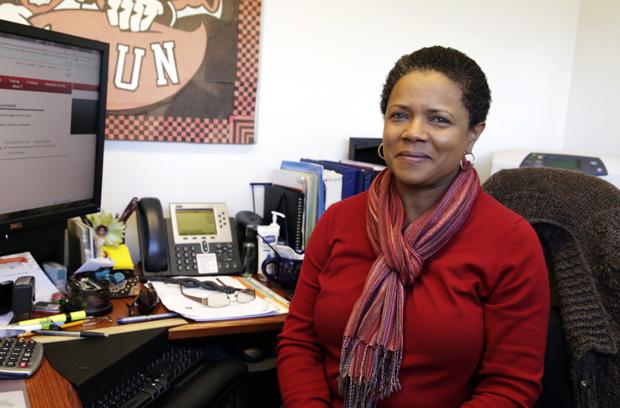
The drive will continue until the end of finals week and begin again during the spring semester to ensure a big supply because the same issues arise during summer break.
“We’ve noticed every year there is a great need for this. We continue to find ways to help and also find ways to grow as well—one sign of that this year is the technology piece that is associated with it,” Davis said.
Davis said he often hears concerns from students about their lack of technology for their academic assignments.
“Its pretty apparent that in the age that we are in it’s very difficult to function in the university without having these types of resources. Everyone has a laptop, everyone has a desktop computer, everyone has access to these types of services,” said Mary Dudley, academic advisor for the EOP Student Services Center for the College of Humanities. “While they are available in different areas on campus—computer labs and so on—we have come to a point where it is a necessity for every student to have in their home. That’s obviously something that Resilient Scholars is hoping to provide for these students.”
People can donate non-perishable foods and used devices like laptops, desktops, cell phones and iPods. Technology donated will be refurbished or traded for new technology.
There are various drop-off locations around campus in EOP advising offices like Nordhoff Hall 135, Jerome Richfield 204 and University Hall 205.
